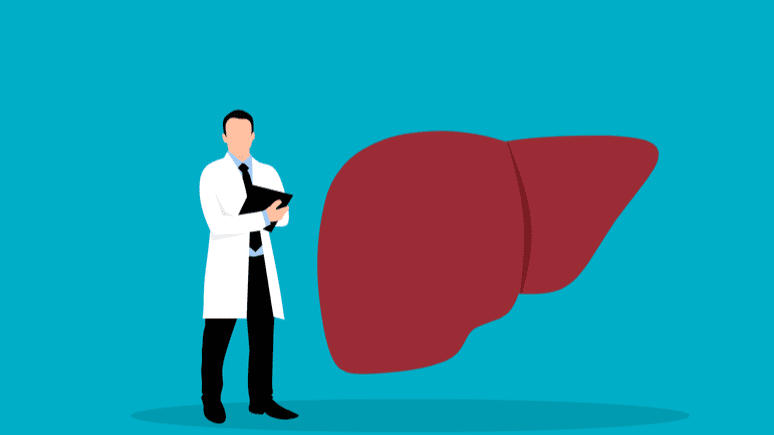The liver is located under the rib on the right side of the abdomen. In addition to digesting food, the liver clears your body of toxic substances.
Liver diseases can be inherited or caused by various factors that damage liver cells. Such factors include viruses, obesity, alcohol, etc. Chronic liver damage leads to scarring (cirrhosis), which can cause liver cancer or liver failure, a potentially fatal condition.
Liver disease causes
- Infection. Liver diseases can be caused by parasitic and virus infections. It results in liver inflammation and reduced activity. Liver infection can be spread through contaminated food or water, blood or semen, or close contact with the infected person. Common liver infections include Hepatitis A, Hepatitis B, and Hepatitis C.
- Inheritance. In the case of the inheritance of an abnormal gene from one or both of your parents, various substances can accumulate in your liver, causing liver damage. Hemochromatosis, Alpha-1 antitrypsin deficiency, and Wilson’s disease are examples of genetic liver diseases.
- Abnormality of the immune system. An autoimmune disease is one in which your immune system attacks parts of your body. Examples of autoimmune liver diseases include autoimmune hepatitis, primary sclerosing cholangitis, and primary biliary cholangitis.
- Cancer. The proliferation of the abnormal cells in the liver may lead to tumors development. Tumors can be noncancerous (benign) or cancerous (malignant).
Liver disease symptoms
Liver disease can be asymptomatic. However, if the liver disease causes signs and symptoms, they typically include:
- Abdominal pain and swelling
- Yellowish skin and eyes (jaundice)
- Dark urine color
- The pale color of the stool
- Itchy skin
- Chronic fatigue
- Loss of appetite
- Nausea or vomiting
- Bruising easily
- Edema (swelling in your arms or legs)
Liver disease treatment
Certain liver diseases can be treated by lifestyle changes, including ceasing alcohol consumption or losing excess weight. Other liver diseases may require treatment with medications or surgery. The doctor will prescribe you an appropriate treatment based on your diagnosis.
If the liver disease has led to liver failure, a liver transplant may be required.
- Lifestyle modifications may help you to improve the health of your liver. Certain types of liver disease can be managed with diet. Limiting alcohol consumption, maintaining a healthy weight, drinking enough water, and eating a diet rich in fiber while avoiding refined sugar, unhealthy fats, and salt may improve your liver health and contribute to liver disease treatment.
- Medications are used in the treatment of some forms of liver disease. Your physician may prescribe you antiviral medicines, antibiotics, blood pressure medications, steroids, or medications to target specific symptoms depending on your diagnosis and liver disease cause. You may also need to take particular vitamins and supplements to improve liver health – an example Here.
- Liver transplantation may be used if the liver disease results in liver failure. During this procedure, your liver is replaced with a healthy transplant liver.
You can also take the Khavinson peptide supplement called Svetinorm as a part of your liver disease treatment. Svetinorm is a peptide supplement containing liver peptide bioregulators. This supplement has a targeted action on the liver cells. Svetinorm s designed to restore the functional activity of liver cells in order to improve the ability of the liver to fight toxic substances in the blood, normalize intracellular metabolism, and prevent the intoxication of the body. This Khavinson peptide supplement also enhances the work of liver-related organs and can be a part of the complex treatment of liver disease.
However, you need to talk to your physician before taking any supplements.
Click here to read more about Svetinorm.
















Leave a Reply
You must be logged in to post a comment.